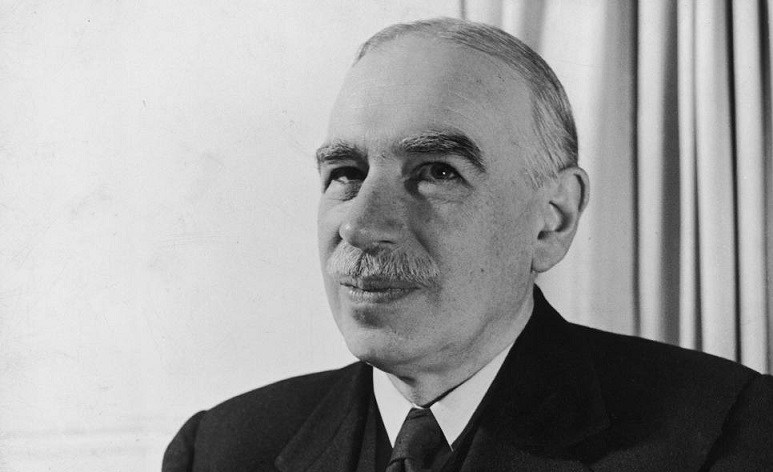John Maynard Keynes Bio

According
to the Encyclopedia of World Biography, John Maynard Keynes was born on June
5th, 1883 and was the son of John Neville Keynes who was an economist and
logician at the University of Cambridge. John Maynard's mother was onetime
mayor of Cambridge. Keynes went to Eton and King's College, Cambridge and
started a career in civil service, where he worked in the India Office. There
he gained knowledge of the government service and in Indian currency and
finance. According
to BBC News, Keynes became incredibly wealthy from investing in financial
markets and was able to greatly improve the King College's financial position
as the bursar. And in 1926, Keynes married Lydia Lopokova who was a Russian
ballerina. Some say what drew him to her was his love for the arts and his
efforts to improve the arts as bursar at King’s College.
Keynes' best-known work, “The General Theory of
Employment, Interest, and Money,” was published in 1936. According to 50minutes.com, John Maynard
Keynes argues in his book that markets having the natural tendency to be
close to full employment is false, and he believes that the state needs to
intervene in order to overcome economic downturns. This publication features an
in-depth explanation of the Keynes’s views on effective
demand and propensity to consume. It also gives a theory as to why
the Great Depression occurred and possible ways to get out of such a
depression. This publication is the establishment of Keynesian theory and sets a
basis for how economics is viewed today.
According to Investopedia, Keynesian
economics states that if investment exceeds its savings inflation will occur
and if savings is higher than its investment a recession will occur. Therefore,
an increase in spending would cause a decrease in unemployment and increase the
rate of economic recovery. Keynesian economics also states that demand will
drive production rather than supply. Keynes argues that economies thrive when
output is driven by sufficient amounts of economic spending. He also believed
that unemployment was caused by a lack of spending which would decrease
aggregate demand. A continuous decrease in spending during a recession result
in further decreases in demand, causing more unemployment and potentially
worsening a recession, which leads to the explanation of why the Great
Depression got worst after government involvement.
According to BBC, Keynes played a
large role in the negotiations that would shape the post-war international
economic order. BBC goes on to state that “In 1944, he led The British delegation to the Bretton Woods conference in the United States. At the
conference, he played a significant part in the planning of the World Bank and
the International Monetary Fund. He died on 21 April 1946.” Overall Keynes’ has
been a huge contributor to the economic field and is the reason why we view
economics the way it is viewed today.
We read The General Theory in the class from Eisners that I briefly described yesterday. It is a very difficult book to penetrate fully. Some of the quotes from various sources understate the subtlety in Keynes' ideas. He had a sense of market dynamics that entails much complexity and people's expectations about the future matter as much as the current supply and demand situation.
ReplyDeleteI agree a lot of Keyne's works is very difficult to read but much of his work discusses and established general models of economics that we use today. A lot us his works have described how to prevent large economic depressions and recessions similar to that of the Great Depression. It changed the view of central leaders in times of recessions on how to stimulate the economy but also focussed more on the short run rather than the long run.
Delete